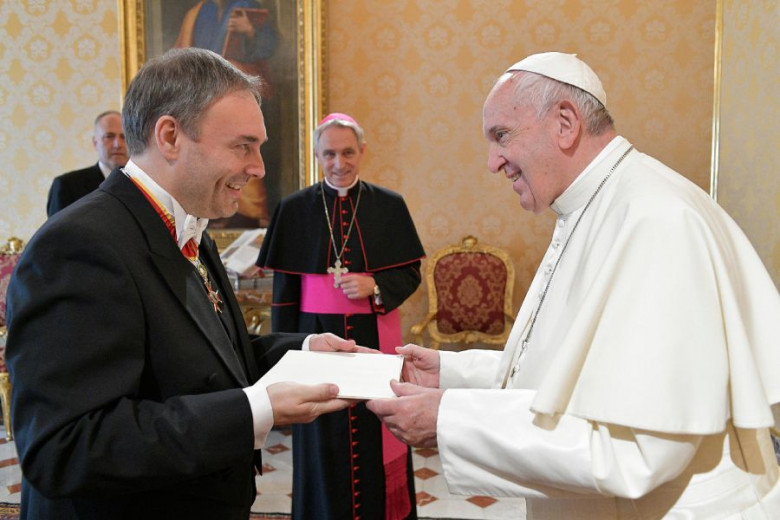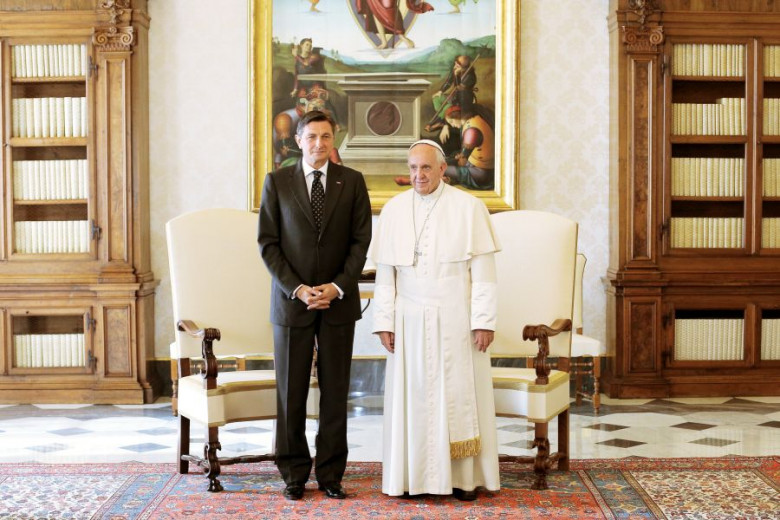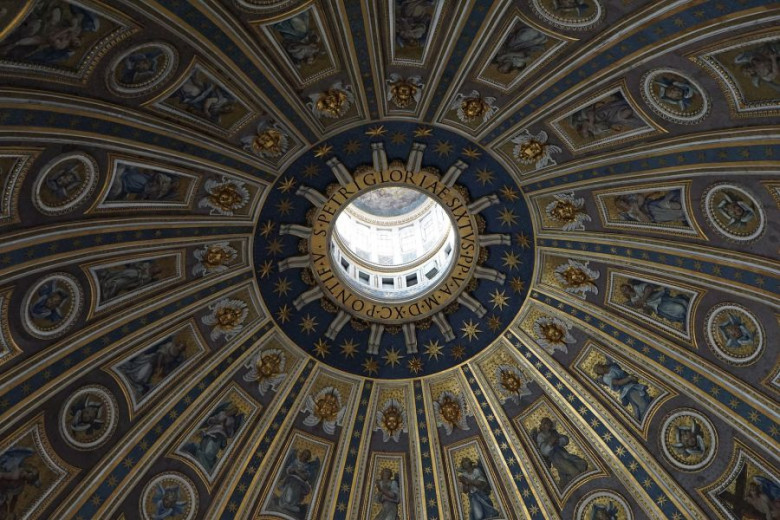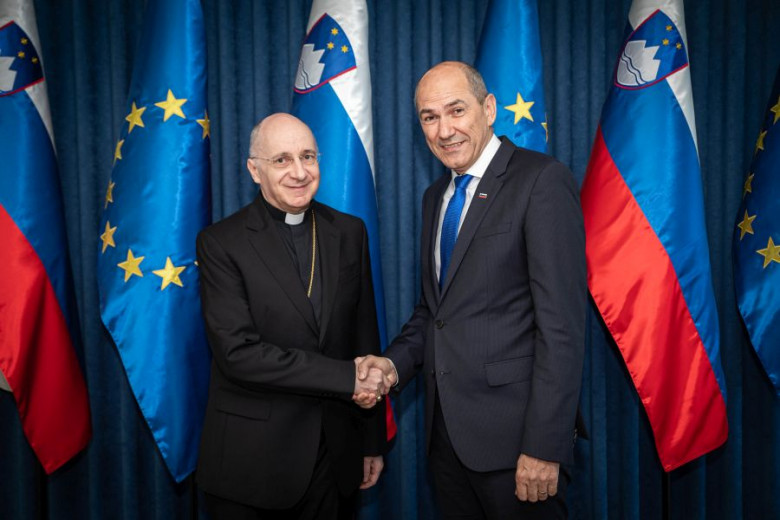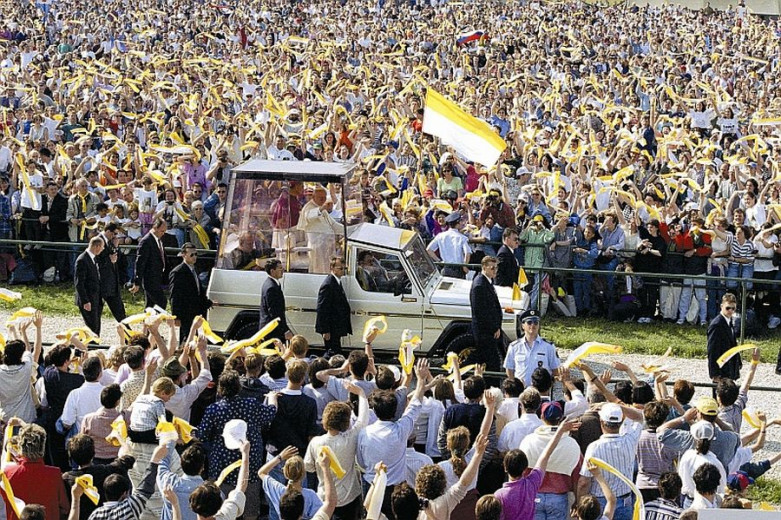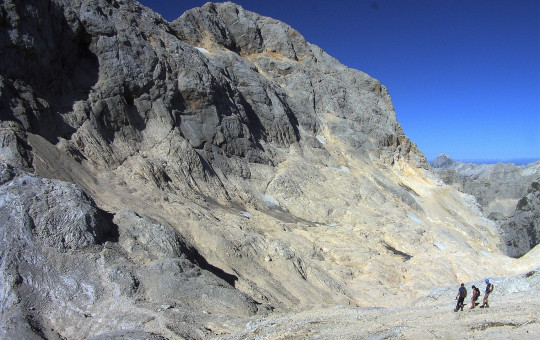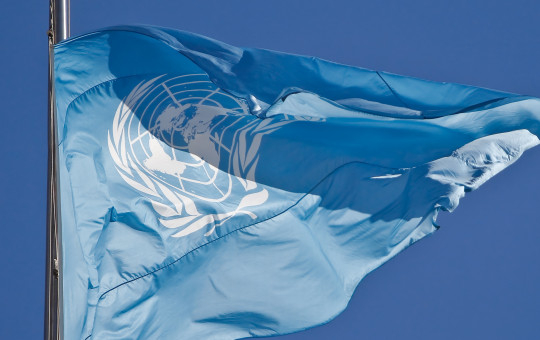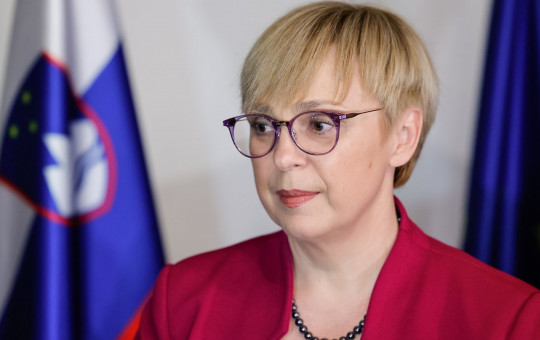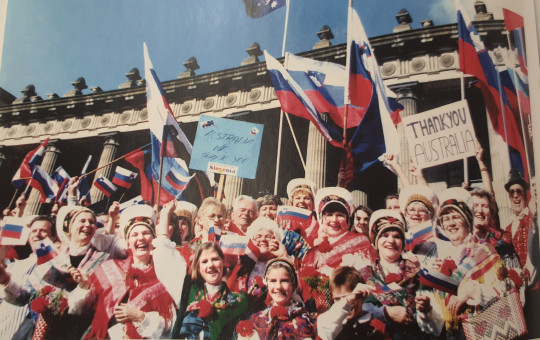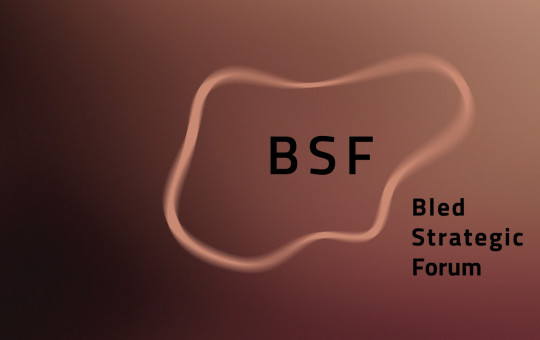Slovenia has maintained diplomatic relations with the Holy See for almost 30 years; they hold similar views on a number of global issues and throughout the time have enjoyed friendly relations and a regular and constructive dialogue between their respective high representatives.
The Holy See, which is the juridical personification of the Catholic Church, has diplomatic relations with 183 countries and with the European Union and the Sovereign Order of the Knights of Malta. As many as 89 countries have resident embassies to the Holy See in Rome.
The diplomatic activity of the Holy See, which is considered to be a unique subject of international law, is related to important international political issues concerning the development of humanity. "The Holy See is involved in many international processes, especially those relating to issues of world peace, respect for international law, protection of human rights, migration, economic and social development, protection of the environment and the achievement of the Millennium Development Goals, the fight against poverty, trafficking in human beings and drugs, and the strengthening of trust and cooperation between nations and countries," said Jakob Štunf, Ambassador of the Republic of Slovenia to the Holy See in the Vatican, adding that all these areas are also priorities for Slovenia.
The Slovenian Foreign Policy Strategy also states that the Holy See is an important interlocutor in Europe and the rest of the world, especially in matters of peace, development, religious freedom, intercultural and interreligious dialogue, cultural identity, and humanitarian and other world issues. In addition to bilateral relations, the dialogue with the Holy See also takes place in the framework of the provisions of the Lisbon Treaty.
The legal basis governing relations between the Republic of Slovenia and the Holy See is the agreement between the Republic of Slovenia and the Holy See on legal issues, which entered into force on 28 May 2004.
The legal basis governing relations between the Republic of Slovenia and the Holy See is the agreement between the Republic of Slovenia and the Holy See on legal issues, which entered into force on 28 May 2004.
For a safe and free profession of faith
Slovenia maintains and continuously strives to strengthen its relationship with the Holy See, which, with its moral and symbolic weight, has a significant impact on relations within the international community.
In foreign policy, our country attaches great importance to respect for human rights, which also include freedom of religion and belief. Slovenia has also joined the initiative launched by the United States regarding the exercise of religious freedom, especially in those areas where Christianity is the most persecuted faith.
It is an effort to ensure the safe and free practice of religion everywhere. Minister of Foreign Affairs Anže Logar noted at the conference of Slovenian diplomacy that this is also one of the country’s priorities and that he expects that our diplomatic and consular representatives will be even more active in this field in the future.
The Embassy of the Republic of Slovenia to the Holy See in the Vatican and contacts with the nuncio in Slovenia play an important role in the country’s relationship with the Holy See.
Talks with the Apostolic Nuncio on Slovenia–Vatican relations
Prime Minister Janez Janša received the Doyen of the Diplomatic Corps in Slovenia, the Apostolic Nuncio to Slovenia, Archbishop Jean-Marie Speich in June 2020. In their talks, they affirmed the importance of relations between the Republic of Slovenia and the Holy See, including in the light of two upcoming commemorations – the thirtieth anniversary of the Holy See’s recognition of Slovenia (2022) and the twentieth anniversary of the Agreement between the Republic of Slovenia and the Holy See on Legal Issues (2021).
They also touched upon the far-reaching challenge posed by the COVID-19 pandemic. The Apostolic Nuncio commended the Government on its very successful handling of the pandemic and its effective crisis management. The Prime Minister further exchanged views with the Apostolic Nuncio, who is also the Apostolic Delegate to Kosovo, on the situation in the Western Balkans.
The Pope’s visit to Slovenia
The high representatives of the Slovenian state have invited Pope Francis to visit Slovenia several times and on different occasions.
The Pope’s visit would represent a recognition of our country’s activities in various areas of foreign policy, where we share views with the Holy See on a number of issues affecting all of humanity.
"Apart from the pastoral dimension of the Pope’s visit, this would certainly be an excellent opportunity to exchange views on various topical issues in the international community," said Minister of Foreign Affairs Anže Logar.
Recognition Slovenia’s independence
The centuries-old ties in the relations between the Holy See in the Vatican and Slovenia came to the fore particularly at the time of Slovenian independence.
On 13 January 1992, the Holy See was among the first to recognise the Republic of Slovenia.
Particular credit for recognising Slovenia’s independence must go to Pope Saint John Paul II, himself a Slav, who understood very well the time and the background of events in Europe after the fall of the Berlin Wall in the late 1980s.
"Rapid international recognition was a great success for Slovenian diplomacy at the time and for those involved in making it happen, woven from many official and unofficial ties spread throughout the world," said Jakob Štunf, Slovenia’s ambassador to the Vatican’s Holy See.
Shortly after the recognition, diplomatic relations were established between Slovenia and the Holy See at the level of embassy and nunciature.
On the occasion of the 30th anniversary of the independence of the Republic of Slovenia, we also remember the support and benevolence of the Holy See on behalf of the independence of our country.
A further opportunity to highlight the strong bond between the Holy See and Slovenia and to express our gratitude will be the installation of a Slovenian Christmas tree in St. Peter’s Square at the end of 2020.
Date: 10. November 2020
Time to read: 2 min

